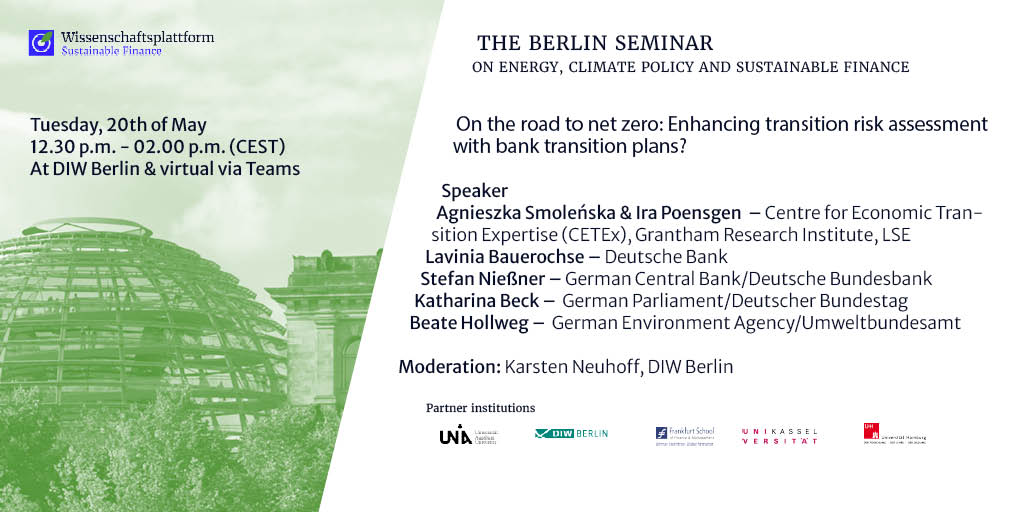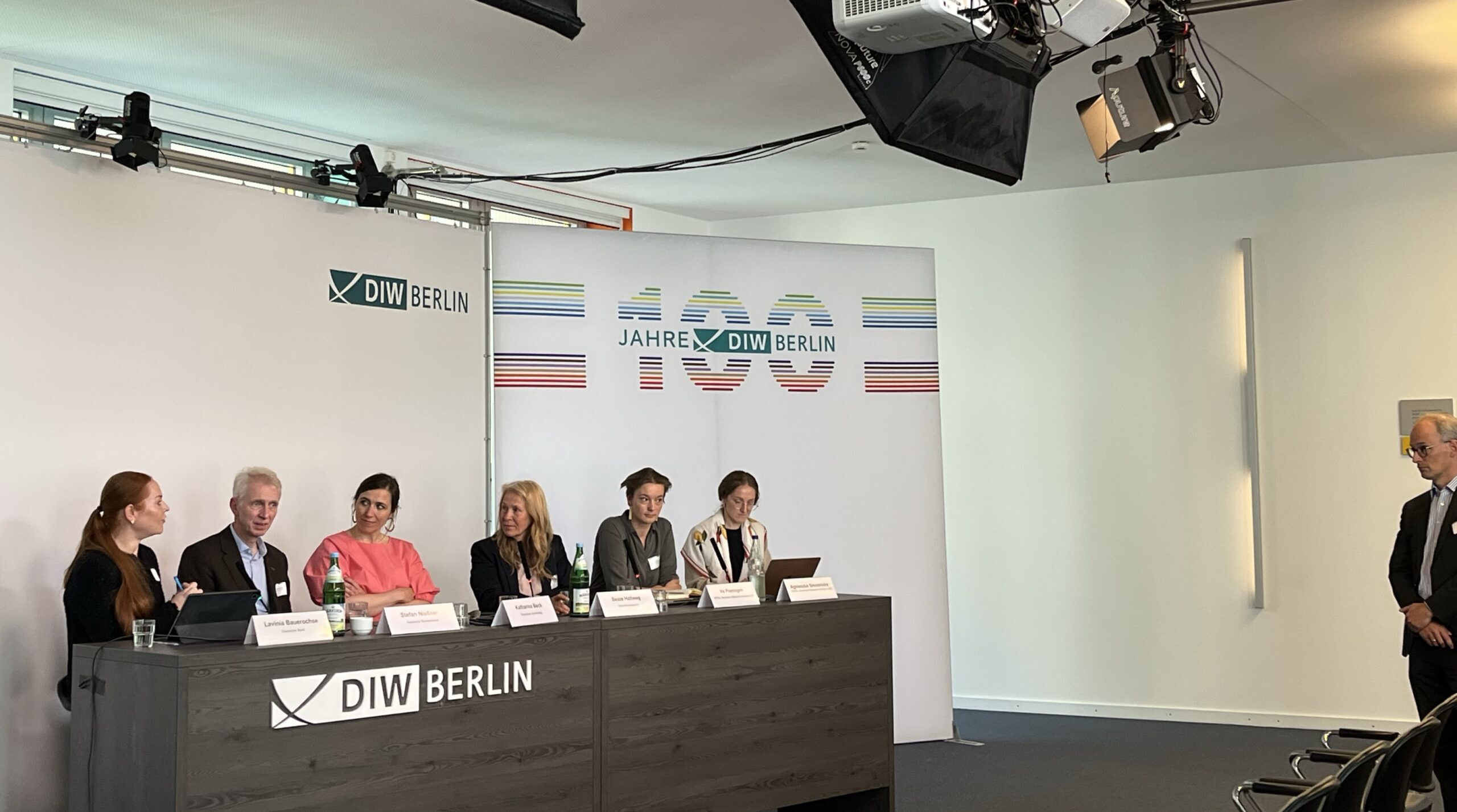
On the Road to Net Zero: Enhancing Transition Risk Assessment with Bank Transition Plans?
Berlin Seminar on Energy, Climate Policy and Sustainable Finance
On Tuesday, 20th of May 2025, we hosted the panel debate “On the Road to Net Zero: Enhancing Transition Risk Assessment with Bank Transition Plans”. Full agenda can be accessed here.
We discussed these topics with a panel of distinguished experts:
🔹 Agnieszka Smoleńska, PhD & Ira Poensgen (Centre for Economic Transition Expertise (CETEx), Grantham Research Institute, London School of Economics) presented the new CETEx report outlining how the different building blocks of the emerging transition plan governance ecosystem fit together and can support bank safety and soundness.
Bank transition plans support management of climate change risks, including transition and physical risks. They provide forward-looking information, such as information on strategic choices, engagement policies and sustainable finance product offer. As regulatory uncertainty regarding sustainability transition around the world looms large, implementing fit-for-purpose climate change risk management tools becomes even more important to support financial stability and financing of transition investments.
To support supervisors in the challenging task of supporting financial stability through the transition, in the report they develop a practical framework showing how the common elements of bank transition plans can be integrated into existing supervisory assessment processes (Basel Pillar 2). Their approach has particular relevance in the EU, where CRD6 requires banks to plan for the transition with a prudential perspective and aligns with existing EU guidance, such as the 2025EBA Guidance on ESG Risk Management. However, it is applicable globally – wherever climate change physical and transition risk is material.
Presentation and report are attached here: Report & Presentation
🔹 Lavinia Bauerochse (Deutsche Bank) highlighted that transition plans are an opportunity to unlock transition finance and drive sustainability more strategically. They can offer a competitive advantage, if used to build resilient and future-proof business models, and therefore support the growth of new industries, and the transition of existing ones.
🔹 Stefan Nießner (Deutsche Bundesbank) emphasized that meeting EBA guidelines on ESG management is not just about compliance, but a strategic opportunity that can enhance a bank’s business through better risk understanding and market positioning. Focus should be on substance over form, and promoting continuous learning; reliable disclosures framework for the whole economy would support the process.
🔹 Katharina Beck (German Parliament) stressed that sustainability is a competitive advantage. Regulation should not be seen as a burden: standardization and comparability can be a strategic opportunity in the EU market. To unlock these benefits, policy certainty is required: clear, coherent regulation, good standards, and reliable data, including early clarity on CSRD requirements in Germany.
🔹 Beate Hollweg (German Environment Agency, UBA) emphasized the value of coordination across the environmental science-policy-business interface supporting effective transition assessments. UBA can assist companies in developing transition plans by providing data, scenarios, and translating science-based insights into practical economic applications.
With best regards from the organizers of the “Berlin Seminar” events in the field of Sustainable Finance,
University of Kassel, University of Hamburg, Frankfurt School of Finance & Management, DIW Berlin, University of Augsburg


Contact
-
![Profilbild_Neuhoff_Karsten Das Foto zeigt Karsten Neuhoff.]()
-
![Profilbild_Schuetze_Franziska Das Foto zeigt Franziska Schütze.]()
Dr. Franziska Schütze
DIW Berlin
E-Mail: fschuetze@diw.de
Show profile page>
Phone: +49 30 89789 – 454 -
![Profilbild_Ballesteros_Fernanda]()


